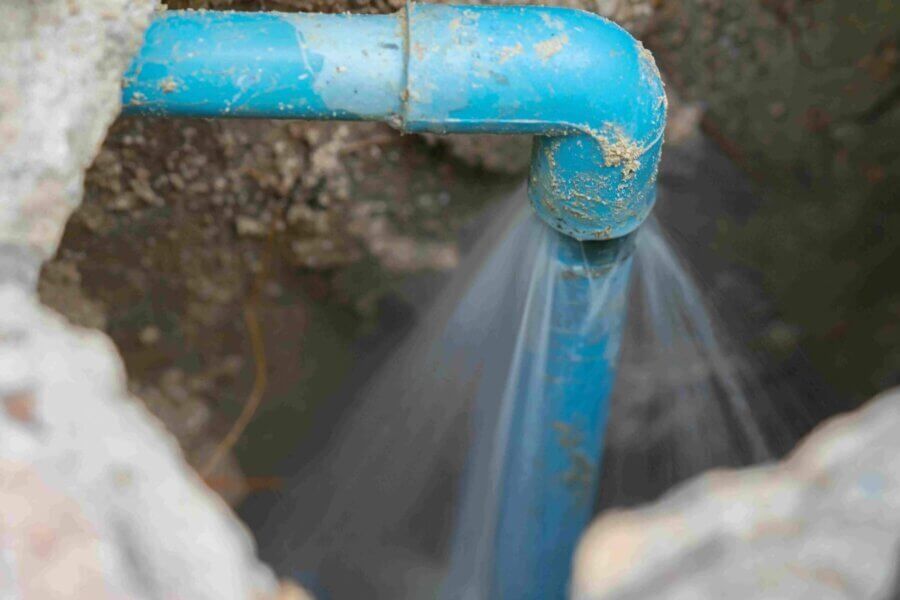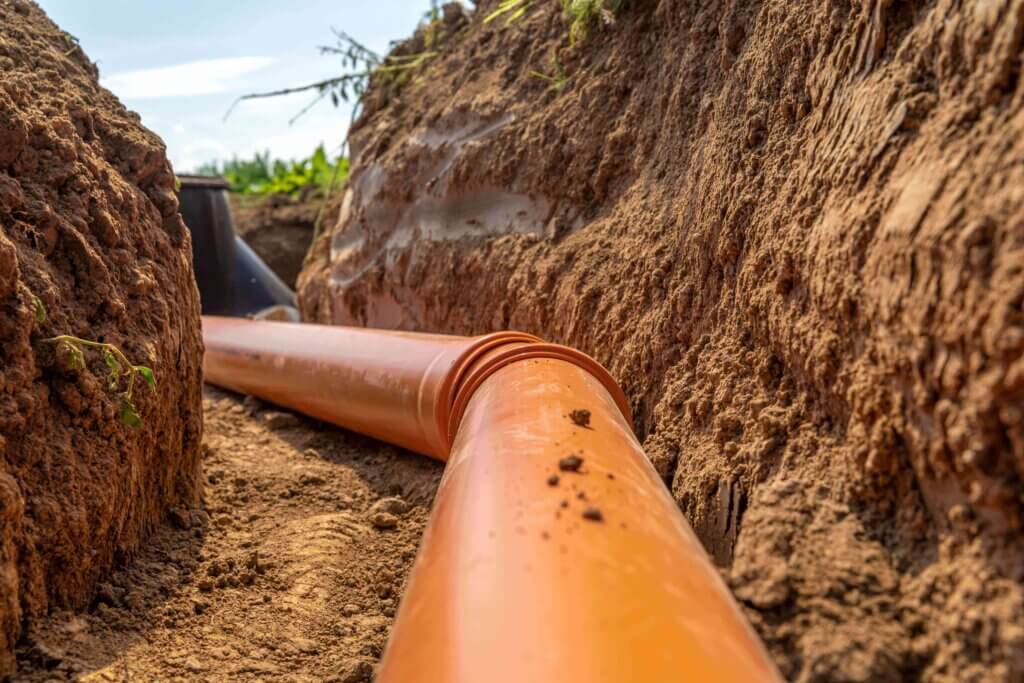
Common Issues With Underground Pipes In South FL

There are several reasons you don’t want standing water around your home.
First, it serves as a perfect breeding ground for mold, fungus, and disease-carrying insects like mosquitoes.
Second, it can weaken the structures of your home and lead to property damage.
In a wet climate like Florida, it’s vital to have a good drainage system to direct wastewater away from your home.
Therefore, it’s important to identify problems with your underground pipes as soon as possible before they cause major damage.
Some of the most common drain pipe problems you may experience in South Florida include corrosion, leaks, blockages, and root intrusions.
Understanding Your Drainage System
Your underground drain system conducts both wastewater and rainwater away from your home using a network of pipes.
For residential properties, the drainage system usually transfers directly into an open body of water.
There are a variety of materials to construct drain pipes, including metal, concrete, and plastic.
Different Types of Underground Pipes
Metals used to be the most common material used for making drainage pipes. They are incredibly durable, but they are also susceptible to rust.
For example, if your house was built before 1975, your drain pipes might be made of cast iron. Unfortunately, these pipes begin to deteriorate after just 25 years, leading to leaks.
In rural areas, concrete drain pipes are common. While they are highly efficient, they are not the most durable option and are prone to frequent leaks.
Today, plastic has outstripped metal as the preferred material for drain pipes. Plastic pipes can be made from PVC, UPVC, or Polyethylene.
Plastic is a very durable material that is not susceptible to rust or corrosion. They are also lightweight and easy to install.
Which Underground Pipe is Best?
Both homeowners and contractors prefer plastic over other materials when it comes to drain pipes.
Plastic is not only cost-effective up front but will outlast its competitors by decades and save money in the long term. In addition, plastic pipes are less likely to leak at the joints and cause soil erosion or property damage.
UPVC drain pipes are ideal for residential underground drainage systems.
Common Problems with Underground Drain Pipes
Because you can’t see your drain pipes, it can be hard to tell if something has gone wrong. You might not realize there is a problem until significant damage has been done.
If you start to notice that the drains in your home aren’t draining properly or there is a foul odor of raw sewage around your yard and property, it is probably time to call in an expert.
Corrosion
Corrosion refers to the gradual deterioration of refined metals into more chemically stable but structurally weak metal oxides. The form of corrosion you are probably most familiar with is rust.
Rust occurs when the iron is exposed to oxygen and moisture. This is a major concern if you have cast iron pipes, as they are constantly exposed to moisture.
In a damp climate like Florida, rust erosion can affect pipes both internally and externally. Wastewater passing through pipes may also cause a buildup of hydrogen sulfide gas.
Hydrogen sulfide gas can oxidize into sulfuric acid, which is highly corrosive to cast iron pipes. Corroded pipes may begin to leak or even crack under high enough pressure.
Leaks and Sinkholes
Pipes can leak for a lot of reasons. Corrosion can weaken the metal, heavy traffic or other vibrations can cause pipes to crack or shift, or ill-fitted joints may come loose. If your drain pipe leaks, it can spill raw sewage into the soil around your property.
Not only will this create an unpleasant odor, but it can also contaminate the soil with germs. If the crack or leak is bad enough to cause flooding, the standing water may also become a breeding ground for other disease-causing microorganisms.
Leaking pipes can also cause sinkholes. The ground underneath your property likely has pockets of air and groundwater. The water leaking from your drain pipes may erode the foundation of the building or the top layer of soil and cause the ground to collapse in on itself.
In severe cases, your home may actually collapse into the ground underneath it.
Blockages and BackUps
There are two main reasons why Floridians may experience backed-up or blocked drain pipes. The first is limescale buildup. Limescale buildup is a problem across the county, but it is one of the largest plumbing complaints in Florida.
Very few Floridians invest in water softeners for their homes. As a result, minerals can build up in drain pipes and block them from draining properly.
The other reason is unique to Florida. Although it may be called the Sunshine State, Florida is prone to frequent, heavy rains, especially in the summer.
As water accumulates on the ground and in gutters, it can start to overwhelm the sewer systems. With nowhere else to go, water backs up into your home.
Root Intrusions
In most cases, Floridians don’t have to worry about one plumbing issue: frozen, burst pipes. However, the state is home to several large trees with deep root systems, including live oak and bald cypress trees.
The longer these trees live, the more extensive their root systems become. Sometimes, individual roots may be strong enough to break pipes that get in their way.
Before planting trees, make sure to have a plumber conduct a land survey to locate any pipes and plant your trees far enough away to prevent root intrusions. Proper tree care can also help you manage root systems and prevent damage.
–
Professional Drain Pipe Installation in Fort Lauderdale
If you think your home may have outdated cast iron pipes, it might be time to consider replacing them with plastic drain pipes before issues arise.
The best way to prevent future drain pipe issues is to entrust your installation to a professional in the first place.
If you’re looking for top-quality drain pipe installation in Fort Lauderdale, FL, 4 Star Plumbing Services offer professionals you can count on. Schedule your consultation today.
Sean Hasle is a third-generation plumber, serving the South Florida area with his family. He is a licensed plumbing, underground utility, and fire contractor.


